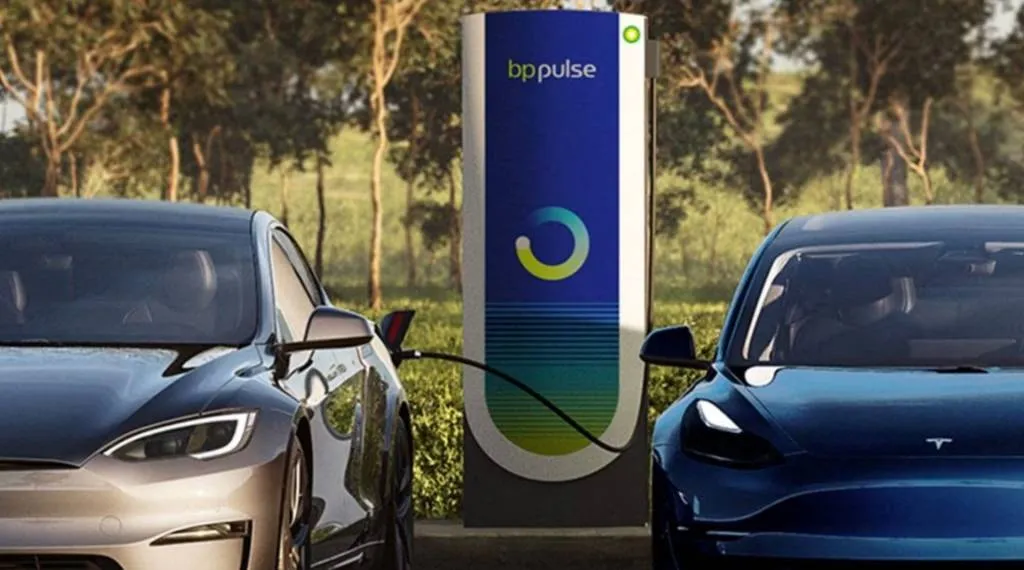At a meeting with top oil executives at his Mar-a-Lago club last month, Donald Trump offered to reverse Biden administration environmental policies in exchange for a $1 billion donation to his presidential re-election campaign, the Washington Post reports.
The donation would be a “deal,” Trump said, because of the taxation and regulation oil companies would avoid because of him, according to the report, which cited people with knowledge of the conversation who spoke on the condition of anonymity.
Under this quid pro quo, Trump reportedly said he would scrap stricter EPA emissions rules anticipated to drive up sales of electric cars—something he is quite critical of—through the beginning of the next decade (while stopping short of an EV mandate) as well as end the Biden administration’s freeze on permits for new liquefied natural gas (LNG) exports and auction off more leases for oil drilling in the Gulf of Mexico.
Oil field (Image: Flickr user johnny choura, used under CC license)
Under Biden, the U.S. is now producing more oil than any country ever has, at nearly 13 million barrels per day last year, the report noted. ExxonMobil and Chevron—the two largest U.S. energy companies—also reported their biggest profits in a decade last year. But the oil industry has still complained about Biden policies—particularly the new EPA emissions rules.
Yet oil companies have been hesitant to fund Trump’s campaign, according to the report. Oil interests contributed more than $6.4 million to Trump’s joint fundraising committee in the first three months of this year, according to an analysis by the advocacy group Climate Power. In contrast, one oil executive reportedly said in the Mar-a-Lago meeting that the industry has spent $400 million on lobbying the Biden administration this year.
It’s worth remembering that these companies diversified their investments, becoming “energy companies” rather than oil companies, and gasoline is seen as a legacy business—nevertheless one that will be important for a long time. So it’s not surprising that they didn’t immediately get on board with Trump’s offer.

BP to purchase Tesla chargers
Were oil executives to take the former president up on said offer, they would be reasonably assured that he’d follow through. During the last Trump presidency, his agencies attempted to revoke California’s emissions authority—and failed—and delayed the imposition of higher fines for automakers that failed to meet emissions targets.
If re-elected, elimination of stricter emissions rules and EV-friendly policies might not be the only way Trump disrupts the auto industry. He’s announced that he will seek a 100% tariff on Chinese vehicles—even if they’re made in Mexico—with some indications he may try to go further in dismantling what’s left of NAFTA, which allows Mexico-built vehicles from other global automakers at no tariff and eligible for some federal incentives.


